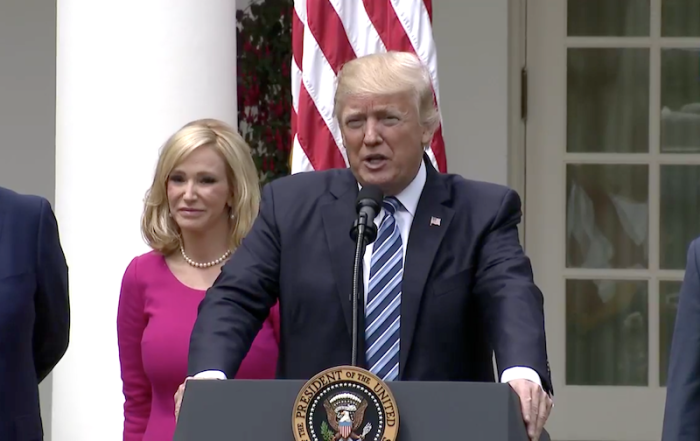How has President Trump changed white Christians' views of 'morality'?

A notable shift has taken place within the past decade regarding how white evangelicals consider "morality" with regard to the politicians they support.
While the subject was frequently discussed during the 2016 election cycle in light of significant support then-candidate Donald Trump received from evangelical Christians, the attitude shift related to what an elected official does in his private life having any bearing on his public duties appears to have persisted over two years into his presidency, political scientists David Campbell and Geoffrey Laymen noted Thursday in an article for The Washington Post.
A 2011 Public Religion and Research Institute and Religion News Service poll found that 60 percent of white evangelicals believed that a public official who “commits an immoral act in their personal life” cannot still “behave ethically and fulfill their duties in their public and professional life.”
By October 2016, however, shortly after the release of the “Access Hollywood” tape in which President Trump was heard making lewd comments, another PRRI poll found that only 20 percent of white evangelicals answered the same question the same way.
No other religious demographic saw such a profound change.
Yet among evangelicals, Trump's past seems to continue to get a pass while former President Bill Clinton's misdeeds are held to the former standard.
Relying on data from the 2018 Cooperative Congressional Election Study, Campbell and Laymen's analysis found that white evangelicals are now "slightly less likely to say that privately immoral behavior means a public official will be unethical in public life, with only 16.5 percent saying yes."
Campbell and Laymen further tested this by asking questions about morality with regard to Trump and Clinton and discovered that white evangelicals had a substantially different reaction when asked about Trump or Clinton.
"When primed to think about Trump, only 6 percent of them say that an elected official who acts immorally in private is incapable of being ethical in public life. But when Bill Clinton is mentioned, that rises to 27 percent — a 21-point increase."
"Thus, one legacy of Trump may be reduced attention to a president’s private behavior among those who used to care about it most," Campbell and Laymen concluded.
Campbell is the Packey J. Dee Professor of American Democracy at the University of Notre Dame and Layman is a professor of political science at the University of Notre Dame.
The phenomenon is not lost on some evangelical Christians with conservative views that have not supported Trump despite agreeing with some of his policies.
Writing at National Review Thursday, David French criticized evangelist Franklin Graham for his unwavering support of Trump.
Graham famously articulated the former standard to which many evangelicals held Clinton in a Wall Street Journal editorial in 1998 amid Clinton's sex scandal involving White House intern Monica Lewinsky. Yet earlier this week, Graham called homosexuality sinful on Twitter in reference to Democratic presidential candidate Pete Buttigieg, the mayor of South Bend, Indiana. Buttigieg, who has been openly critical of Christians who support Trump, whom he has called the "porn star president."
"Yes, marriage is the union between a man and a woman, but Trump married a woman, then married his mistress, then married a third woman, then had an affair with a porn star while that third wife was pregnant with his child. Yet Graham says, 'God put him' in the presidency and we need to 'get behind him and support him,'” French said, mourning the loss of evangelical Christian witness.
Evangelicals must not adopt a "purely transactional" approach when it comes to politics, he stressed.
"In scripture, prophets confronted leaders about their sin. They understood a core truth, one clearly articulated in the Southern Baptist Convention’s 1998 Resolution on Moral Character of Public Officials: “Tolerance of serious wrong by leaders sears the conscience of the culture, spawns unrestrained immorality and lawlessness in the society, and surely results in God’s judgment.”
Yet, too many American evangelical leaders have rationalized serious wrongdoing by Trump, he continued.
"Some have even given the 'thumbs up' in front of a Playboy cover. (What would Nathan, who dramatically confronted David over his infidelity and murder, say?) In so doing, they’ve seared the consciences of the culture and the church, and granted their secular opponents all the ammunition necessary to question our sincerity as believers."





























